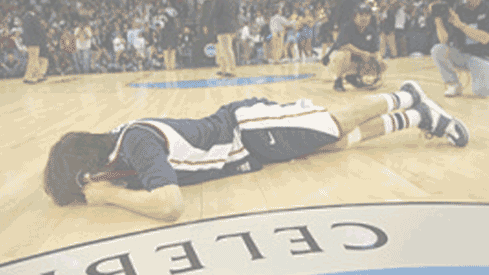This will not happen nor do I want OSU to be the University to bring a lawsuit against the NCAA. I want Akron to. The COI admitted in their report that they did not follow the bylaws for post season ban for level 1 infractions and also aggravated cases. This admission in the report is malpractice from the COI as it opens them up to the potential for a lawsuit from other Universities that went through the same process. The COI's reasoning for not following the bylaws was to not punish athletes that didn't partake in the cheating. This excuse does not hold up to scrutiny when you consider almost every single team punished by the NCAA has had innocent athletes. This is admitting the NCAA should have never done forward facing punishments. The NCAA has not acted in this manner before in this degree. So why did Michigan get beneficial treatment? Did the COI put this language in the report to dissuade Michigan from appealing the punishment?
So, one may ask, can another NCAA member sue? Absolutely, will they? No. However, below are reasons why an organization could be sued for not following their bylaws and the remedies of that.
1. Breach of Contract. Bylaws are often considered a binding contract between the organization and its members. If the organization deviates from those bylaws members who are harmed by that action (e.g., unfair treatment, denied rights) may have grounds to sue for breach of contract. The lawsuit would argue that the organization did not uphold the agreed-upon rules and procedures.
2. Breach of Fiduciary Duty: If the decision-makers intentionally (admittedly) ignore the bylaws to help a specific individual, they may be breaching their fiduciary duty to act in the best interest of the organization and its members. This can be especially serious in nonprofits. Fiduciary duty includes acting fairly, in good faith, and according to established rules.
3. Unfair or Unequal Treatment: If one member is treated more leniently than others by disregarding the rules other members may argue discrimination, unequal treatment, or arbitrary enforcement of policies. This is especially actionable if the deviation caused harm or denied someone else a benefit or right. In this case, B10 championship or playoff appearances could have significant payout implications.
4. Possible Legal Outcomes: If a court finds wrongdoing, potential remedies could include injunctions forcing the organization to follow its bylaws.Reversal of improper decisions, monetary damages if harm can be shown, or removal of officers or directors.
5. Things to Consider before legal action: University must be a member or someone directly affected. You must show how the rule-breaking harmed you or the organization. There are multiple Universities that good standing of the harm Michigans cheated harmed them.
